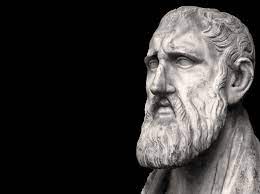Introduction
Zeno of Citium was a Greek philosopher who lived in the 4th and 3rd century BC. He is the founder of the Stoic school of philosophy, which became one of the most influential schools of thought in ancient Greece and Rome. In this article, we will explore the life and teachings of Zeno of Citium.
Early Life
Zeno of Citium was born in Citium, a city located in Cyprus, in 334 BC. He was of Phoenician descent, but his family had lived in Cyprus for several generations. As a young man, Zeno worked as a merchant, trading in various goods. During one of his trips to Athens, he became interested in philosophy and began to study with Crates of Thebes, a Cynic philosopher.
Philosophy
Zeno’s philosophy was heavily influenced by the Cynic school, but he also incorporated elements from other philosophical schools, such as the Megarian and the Academic. His teachings emphasized the importance of living a virtuous life, which he defined as a life in accordance with reason.
Stoicism
Zeno’s most significant contribution to philosophy was the founding of the Stoic school. Stoicism taught that the universe is rational and that everything happens for a reason. The goal of life, according to the Stoics, was to live in harmony with nature and to cultivate wisdom, courage, justice, and self-control.
Logic
Zeno was also known for his work in logic. He developed a system of propositional logic that was later refined by his successor Chrysippus. This system was based on the idea that all statements can be reduced to a subject and a predicate.
Ethics
In addition to logic, Zeno also wrote extensively on ethics. He believed that the key to a virtuous life was to live in accordance with nature. This meant living in harmony with the universe and accepting whatever happens with equanimity.
Physics
Finally, Zeno also wrote about physics, although his views in this area are not as well known as his views on logic and ethics. He believed that the universe was a single, living organism, and that everything in it was interconnected.
Later Life and Death
Zeno spent most of his life in Athens, where he taught philosophy and wrote extensively. He had a reputation as a wise and respected teacher, and his students included Cleanthes, Chrysippus, and Panaetius. Zeno died in Athens in 262 BC, at the age of 72.
Legacy
Zeno of Citium’s philosophy had a profound influence on Western thought, particularly during the Hellenistic period and the Roman Empire. Stoicism remained a popular school of philosophy for several centuries, and its ideas continue to influence modern philosophy, particularly in the fields of ethics and political theory.
Conclusion
Zeno of Citium was a significant figure in the history of philosophy, particularly as the founder of the Stoic school of thought. His emphasis on living a virtuous life and cultivating wisdom, courage, justice, and self-control continue to influence modern philosophy and ethics.
FAQs
- What did Zeno of Citium believe in?
- Zeno believed in living a virtuous life in accordance with reason and nature, as well as the interconnectedness of all things in the universe.
- What is Stoicism?
- Stoicism is a school of philosophy founded by Zeno of Citium that emphasizes living in harmony with nature and cultivating wisdom, courage, justice, and self-control.
- What is Zeno of Citium’s legacy?
- Zeno’s philosophy had a profound influence on Western thought, particularly during the Hellenistic period and the Roman Empire.
- What were Zeno of Citium’s contributions to philosophy?
- Zeno’s most significant contribution was the founding of the Stoic school of philosophy, as well as his work in logic and ethics.
- Who were some of Zeno’s famous students?
- Zeno’s students included Cleanthes, Chrysippus, and Panaetius, all of whom went on to become important figures in the Stoic school.
- How did Zeno’s philosophy influence later philosophers?
- Zeno’s emphasis on living a virtuous life in accordance with reason and nature, as well as the interconnectedness of all things in the universe, continued to influence later philosophers, particularly in the fields of ethics and political theory.
- Was Zeno of Citium famous during his lifetime?
- While Zeno was respected as a teacher during his lifetime, he did not achieve widespread fame until after his death.
- What was Zeno’s view on physics?
- Zeno believed that the universe was a single, living organism, and that everything in it was interconnected. However, his views on physics are not as well known as his views on logic and ethics.
- How did Zeno die?
- Zeno died in Athens in 262 BC, at the age of 72.
- What is Zeno of Citium’s lasting legacy?
- Zeno’s lasting legacy is his founding of the Stoic school of philosophy, which had a profound influence on Western thought and continues to influence modern philosophy and ethics.



